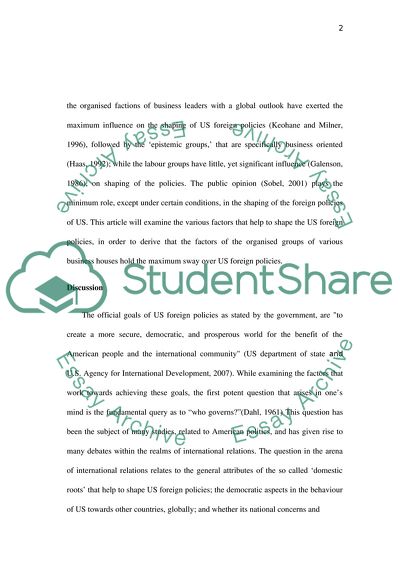Cite this document
(Major Influences That Have Shaped Foreign Policy in the USA Dissertation - 1, n.d.)
Major Influences That Have Shaped Foreign Policy in the USA Dissertation - 1. Retrieved from https://studentshare.org/politics/1748965-american-foreign-policy
Major Influences That Have Shaped Foreign Policy in the USA Dissertation - 1. Retrieved from https://studentshare.org/politics/1748965-american-foreign-policy
(Major Influences That Have Shaped Foreign Policy in the USA Dissertation - 1)
Major Influences That Have Shaped Foreign Policy in the USA Dissertation - 1. https://studentshare.org/politics/1748965-american-foreign-policy.
Major Influences That Have Shaped Foreign Policy in the USA Dissertation - 1. https://studentshare.org/politics/1748965-american-foreign-policy.
“Major Influences That Have Shaped Foreign Policy in the USA Dissertation - 1”, n.d. https://studentshare.org/politics/1748965-american-foreign-policy.


